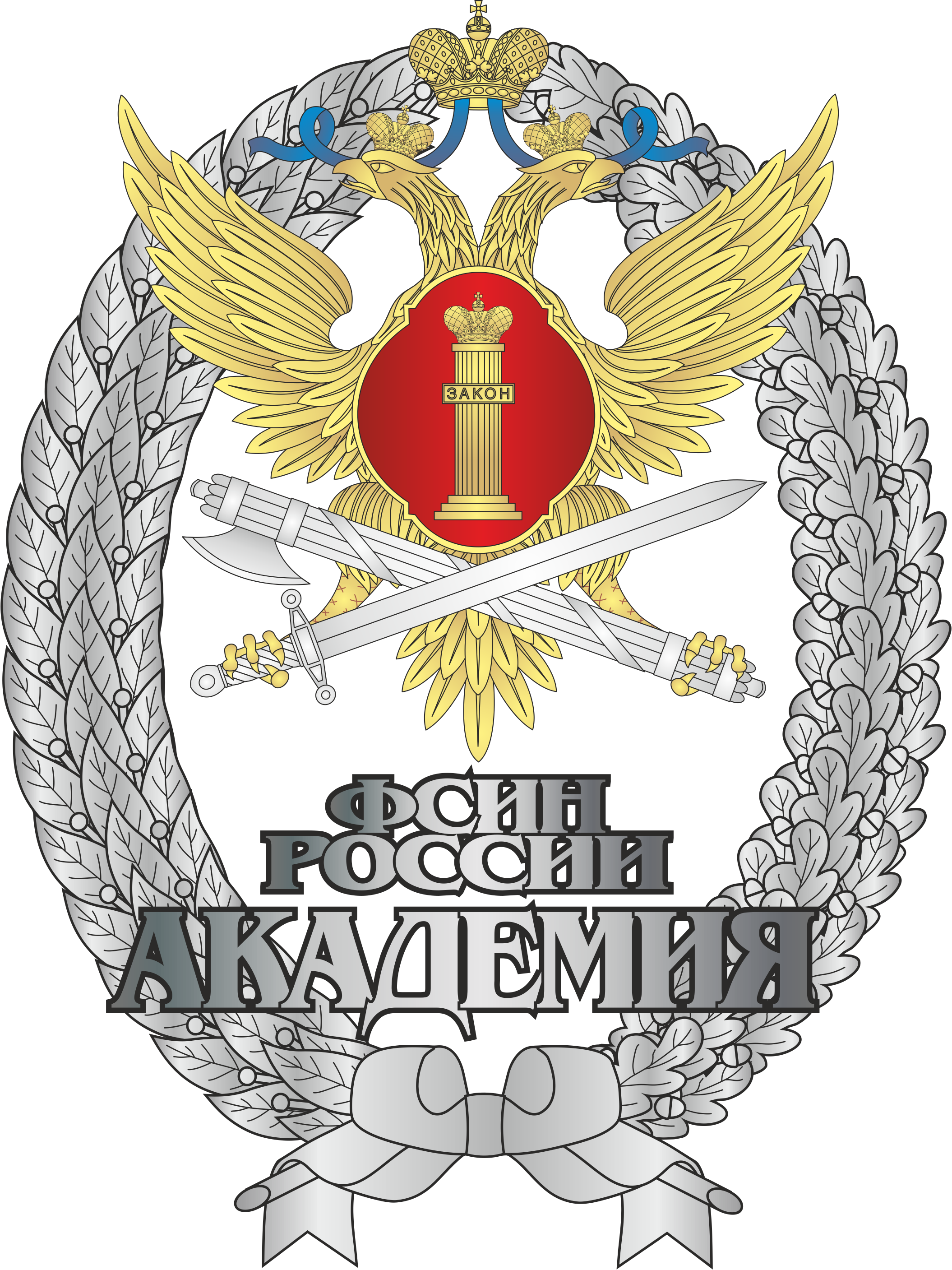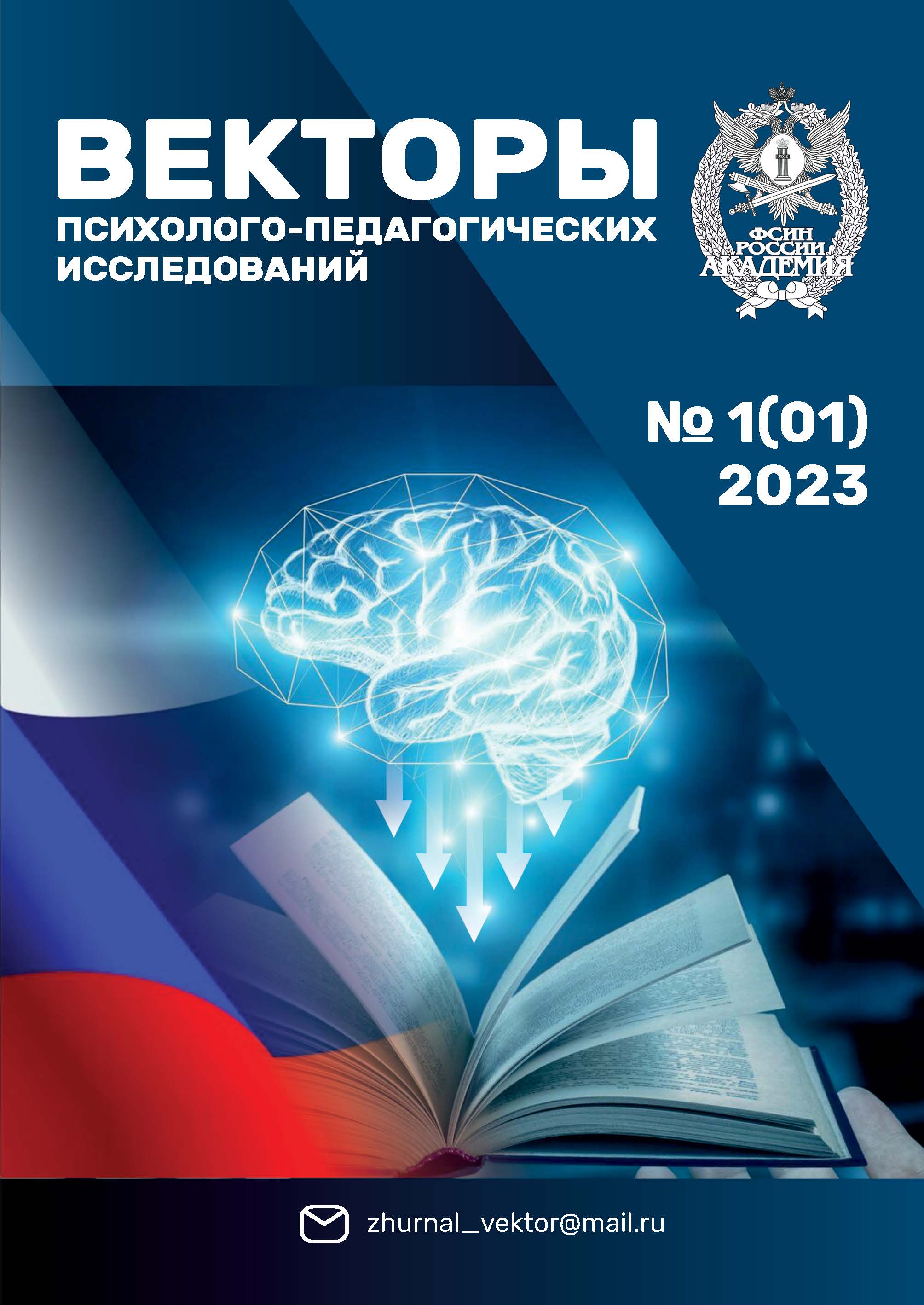Ruazan, Russian Federation
Ryazan, Russian Federation
UDC 343.83
The article discusses approaches to the study of emotional intelligence. According to the results of the theoretical analysis, the main existing concepts of emotional intelligence were noted, its structural components were revealed. The issues of the ontogenetic formation of emotional intelligence in the structure of personality, the peculiarities of development at each age stage, as well as factors influencing this process are discussed. The structure of emotional intelligence and its impact on success in various types of activities, which are the main ones during the period of higher education, are analyzed. The features of educational and professional activity, as well as the criteria for its success, are revealed. The article describes the relationship between the level of success of a cadet with his personal qualities, social factors, and conditions of study in higher education.
emotional intelligence, emotions, understanding emotions, emotion management, dynamics of emotional intelligence, success, educational and professional activities, cadets
1. Anan'ev, B. G. 2001, About the problems of modern human knowledge, 2nd edn, Piter, St. Petersburg.
2. Andreeva, I. N. 2006, ‘Biological and social prerequisites of emotional intelligence’, in A. P. Lobanov & N. P. Radchikova (eds), Cognitive psychology: collection of articles, pp. 7-11, BGPU, Minsk.
3. Garskova, G. G. 1999, ‘Introduction of the concept of “emotional intelligence” into psychological theory’, in Ananiev Readings: Abstracts of a scientific and practical conference, pp. 25-26, St. Petersburg University, St. Petersburg.
4. Gorbushin, A. G. 2006, Pedagogical design of the educational program of a modern gymnasium: PhD thesis (Pedagogy), Izhevsk.
5. Goulman, D. 2009, Emotional intelligence, translated from English by A. P. Isaeva, AST, VKT, Moscow, Vladimir.
6. Davydova, Ju. V. 2011, Emotional intelligence: essential signs, structure and features of manifestation in adolescence: PhD thesis (Psychology), Moscow.
7. Dobrin, A. V. 2014, Emotional intelligence in children aged 7-8 years with a different type of functional sensorimotor asymmetry profile: PhD thesis (Psychology), Elec.
8. Dubinin, A. V. 2023, Formation of educational and professional success of cadets of the National Guard troops of the Russian Federation: PhD thesis (Pedagogy), Novosibirsk.
9. Ivanova, E. S. 2011, ‘Gender and age characteristics of emotional intelligence and its structural components’, Education and Science, Izvestija UrO RAO, i ss. 7 (86), pp. 65-74.
10. Klimov, E. A. 2003, Paths to professionalism (a psychological view): textbook, Flinta, Moscow.
11. Kochetova, Ju. A. 2015, ‘The structure of emotional intelligence in adolescence’, in L. F. Obuhova, I. V. Shapovalenko & M. A. Odincova (eds), Horizons of Maturity: a collection of abstracts of participants of the Fifth All-Russian Scientific and Practical Conference on Developmental Psychology, Moscow, November 16-18, 2015, pp. 55-63, Moscow State Psychological and Pedagogical University, Moscow.
12. Kudrjashova, T. Ju. 2018, ‘Features of the development of components of emotional intelligence at the stage of preschool childhood’, Problems of modern pedagogical education, iss. 61(4), pp. 297-300.
13. Mal'chukova, N. N. & Vinogradova, M. V. 2023, ‘Motivation to study as a factor of success of students’ educational activities, agroindustrial complex: innovative technologies, iss. 2(61), pp. 60-66.
14. Meshherjakova, I. N. 2010, ‘Formation of emotional intelligence of psychology students in the process of studying at a university’, Bulletin of Tambov University, Humanities Series, iss. 1(81), pp. 157-161.
15. Nguen, M. A. 2007, ‘Psychological prerequisites for the emergence of emotional intelligence in the senior preschool age’, Cultural and historical psychology, iss. 3, pp. 46-51.
16. Panteleeva, T. V. 2016, ‘Features of socio-psychological adaptation of Internet addicts in early youth’, ANI: pedagogy and psychology, iss. 1(14), pp. 185-188
17. Rean, A. A. (ed.) 2015, Human psychology from birth to death: textbook, AST, Moscow.
18. Slastenin, V. A. (ed.) 2008, Pedagogy: textbook, 8th edn, Academy, Moscow.
19. Ljusin, D. V. & Ushakov, D. V. (eds) 2009, Social and Emotional Intelligence: from Processes to Measurements, Institute of Psychology of the Russian Academy of Sciences, Moscow.
20. Fomina, S. V. 2009, ‘The formation of value orientations of a teenager in educational activities’, Proceedings of the Samara Scientific Center of the Russian Academy of Sciences, vol. 11, iss. 4-3, pp. 652-656.
21. Cheremisova, I. V. & Gaponova, S. A. 2020, ‘Personal factors of students' readiness for professional activities to provide assistance to victims in an extreme situation’, Applied legal psychology, iss. 1(50), pp. 30-35.
22. Shadrikov, V. D. 1996, Psychology of human activity and abilities: studies. stipend, 2nd edn, Logos, Moscow.
23. Shelkunova, O. V. 2005, Creative self-realization of students in the educational process of the university: PhD thesis (Pedagogy), Irkutsk.
24. Bar-On, R. 2006, ‘The Bar-On model of emotional-social intelligence (ESI)’, Psicothema, iss. 18 (1), pp. 13-25.
25. Mayer, J. D., Salovey, P. & Caruso, D. R. 2000, ‘Models of emotional intelligence’, in R. Stenberg (ed.), Handbook of intelligence, pp. 396-420, Cambridge University Press, N. Y.
26. Petrides, K. V., Furnham, A. 2000, ‘On the dimensional structure of emotional intelligence’, Personality and Individual Differences, iss. 29, pp. 313-320.









